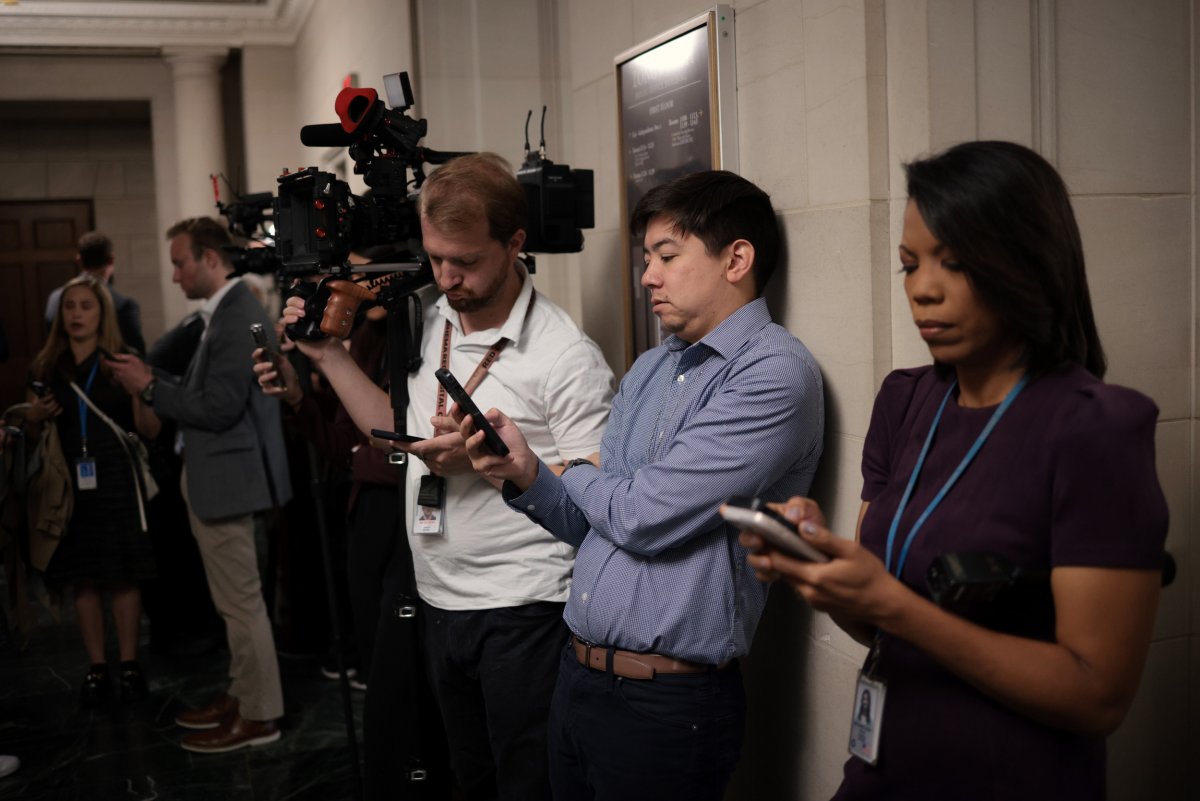As another contentious election cycle unfolds in the U.S., observers agree that the coming months will bring unprecedented levels of abuse targeting journalists, election workers, and other professionals whose work is essential to the democratic process. From hateful slurs and sexual harassment to doxing and death threats, online attacks are not just the purview of bored basement trolls. Whether purely the work of human networks or supercharged by AI-generated tools, such attacks are often part of a broader set of strategies intended not just to intimidate the individuals targeted, but to undermine the democratic principles and institutions they make possible.
Over the past few years, online abuse has become an increasingly widespread occupational hazard for everyone from public health officials to librarians, but the problem is particularly acute for journalists—especially those who identify as people of color, LGBTQ people, women, and members of religious and ethnic minorities. A 2022 Pew Research Center study found that Hispanic, Black, and Asian journalists in the U.S. were over four times more likely to experience identity-based harassment than white journalists.
Because online abuse damages journalists' mental health and can even lead to offline violence, it can be incredibly effective in suppressing press freedom. By driving diverse voices away from political coverage and even pushing them out of the industry altogether, it exacerbates inequities in journalistic representation and coverage that have plagued the U.S. media landscape for decades. This is a serious problem for democracy. Numerous studies have shown just how critical local journalists, in particular, are for keeping municipal budgets in check and national politicians accountable to their districts.
Spurred by these challenges, we spent the past two years conducting extensive research to understand what support was available to journalists facing online harassment—especially those from backgrounds underrepresented in the industry. We found that journalists experiencing abuse often get insufficient support from their newsrooms. They want to discuss their experiences with other journalists, yet they feel profoundly isolated. While they deeply value a wide range of professional support and mentorship networks, they struggle to find spaces where they can candidly share their experiences of abuse.
As one early-career newspaper journalist we interviewed put it, "[It] would have been helpful to know that I wasn't alone or that I wasn't some sort of weak journalist because I couldn't handle picking up the phone and listening to some guy just spew [racist] bullshit."
In a new report, The Power of Peer Support, published by the free expression nonprofit PEN America, we examine a specific form of peer support that is already used effectively in many high-stress professions like emergency response and veterans' groups. We believe that this "small-group" model—in which a trained facilitator assists a small group of peers in providing one another with support—has substantial promise for mitigating the harms of abuse in the journalism industry.
The small-group peer support model is comparatively low-cost and highly adaptable, which has significant advantages in industries, like journalism, that are under intense financial pressure. Support groups that are online and confidential have the potential to connect professionals who might otherwise be isolated by their situation or geography. This can help connect local and freelance journalists across the country who share a background, identity, or lived experience.

As one midcareer freelance journalist we interviewed said, "In that moment [of experiencing harassment], I would have really benefited, I think, from a peer support network ... [and connection] to other women who had gone through this experience."
Peer support alone is not enough to ensure the safety and resilience of journalists. News organizations must do more to protect and support their staff and freelancers, from establishing robust protocols to address abuse to facilitating access to professional mental health care. Technology companies should strengthen their policies and build better features to reduce hate and harassment on their platforms. And Congress should pass comprehensive legislation that addresses user data privacy and facilitates platform transparency.
Although our report focused specifically on reducing occupational harms to journalists, we believe that our findings hold promise for election workers, health experts, researchers, librarians, and many other professionals. Our research indicates that by bringing together people who have shared lived experiences, peer support can build community and foster resilience among the diverse professionals our country needs most to help safeguard the democratic process, and ensure fair, representative governance in this election and those to come.
Susan E. McGregor is a research scholar at Columbia University's Data Science Institute, where she focuses on community-centered security, privacy, and education and co-chairs its Center for Data, Media & Society.
Viktorya Vilk is the director for digital safety and free expression at PEN America, where she created and runs all of the organization's programming on online abuse defense and digital safety for writers, journalists, their allies, and their employers.
Jeje Mohamed is a holistic safety expert and the senior manager for digital safety and free expression at PEN America, where she leads the training program, develops resources, and serves on the advisory board of the Coalition Against Online Violence.
The views expressed in this article are the writers' own.
Uncommon Knowledge
Newsweek is committed to challenging conventional wisdom and finding connections in the search for common ground.
Newsweek is committed to challenging conventional wisdom and finding connections in the search for common ground.
About the writer
To read how Newsweek uses AI as a newsroom tool, Click here.








